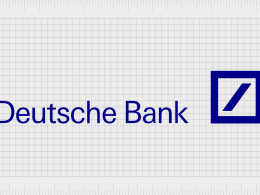by Adriaan du Toit, Fixed Income, AllianceBernstein
When I landed in Nigeria’s capital of Abuja I was taken by the modern and cavernous nature of its brand-new airport terminal, a reflection of the country’s future ambitions. One of Africa’s best airports, in Accra, Ghana, also boasts a new terminal. Meanwhile, foreign travelers can apply online for an e-visa before they fly to Ivory Coast, pick it up at the airport when they land and emerge into the bustling streets of Abidjan quickly and efficiently.
First impressions don’t lie: West Africa is making progress, particularly when it comes to infrastructure. But when I traveled to the region in May, I was more interested in learning how the region’s largest economies would fare during crucial political transitions. President Muhammadu Buhari of Nigeria was recently elected to a second term, while both Ghana and Ivory Coast will hold presidential elections next year.
Nigeria: The giant taking smaller steps
Nigeria’s economy is by far the largest of the three, but that’s only one reason we expect much slower annual growth there than in Ghana or Ivory Coast over the next few years (2% vs. 6-8%). For one thing, the Nigerian economy depends heavily on oil. Even though oil production directly accounts for less than 10% of GDP, the fact that oil sales are the country’s primary source of liquidity mean it plays a much larger indirect role in the economy, particularly when prices swing. Corruption is another significant challenge.
Buhari reappointed Bank of Nigeria Governor Godwin Emefiele, which should keep the naira stable and comfort carry-hungry investors. However, investors can also expect more unconventional monetary policy as the central bank tries to manage reserves and the currency while minimizing negative economic externalities. Whether these policies or other initiatives can catapult growth from its current sub-optimal trajectory remains to be seen.
Ghana: Will Old Habits Die Hard?
Ghana has managed to grow and rebalance its economy in the four years since it entered an International Monetary Fund (IMF) program. But with the IMF out of the picture and a presidential contest looming in December 2020, many investors are wondering whether the country is headed back to the old days of living beyond its means.
Historically, Ghana has racked up debt ahead of elections as politicians attempt to curry favor with the electorate. Sensing a pattern, foreign investors sent the cedi plunging in Q1, after the Bank of Ghana unexpectedly cut interest rates. The central bank’s move followed the introduction of the 2019 budget, which called for raising public employee pay, robust spending on goods and services, and focusing on external borrowing to plug the funding gap.
The selloff in Ghanaian assets was only partly due to policy missteps. Expectations for the country’s performance were perhaps unrealistically high after the successes under the IMF program ended. Investors’ concerns should ease if the economy keeps growing at full-tilt and President Nana Akufo-Addo cruises to a second term, but they may well continue to demand additional risk premium until Ghana proves it has truly changed its ways.
Ivory Coast: Watch the Political Space
Economic growth is robust, fiscal consolidation is on track, and an IMF program scheduled to end in 2019 will likely be extended. But politics may well drive asset price performance in Ivory Coast in 2020.
Ivorian politics are complex at the best of times, but the October 2020 presidential elections are particularly fraught. President Alassane Ouattara asserts that a Constitutional change during his second term allows him to run for a third, though he isn’t likely to make a final decision until mid-2020. Former President Laurent Gbagbo, who was acquitted of crimes against humanity at the International Criminal Court earlier this year, also could appear on the candidate list. It’s too early to debate specific scenarios, but time to start paying more attention.
The views expressed herein do not constitute research, investment advice or trade recommendations and do not necessarily represent the views of all AB portfolio-management teams and are subject to revision over time. AllianceBernstein Limited is authorised and regulated by the Financial Conduct Authority in the United Kingdom.
Source: AllianceBernstein
This post was first published at the AllianceBernstein blog
Copyright © AllianceBernstein
















